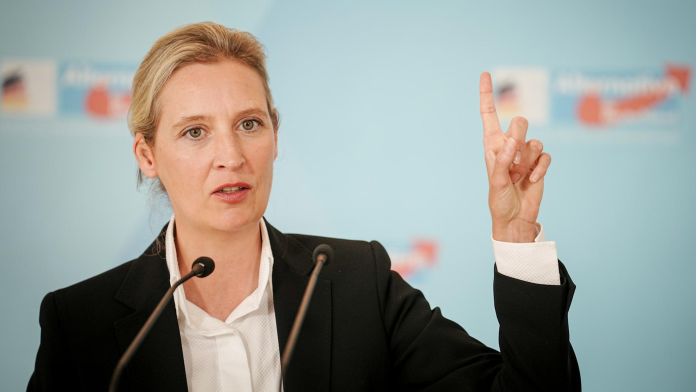Alternativ fur Deutschland (AfD), a right-wing populist political party known for its anti-immigration and Euroskeptic views has been the source of controversy within the German political system, with opponents claiming the political party poses a danger to the German Constitution.
The Formation of the AfD
The AfD was formed by Alexander Gauland, Bernd Lucke, and Konrad Adam, a former journalist and politician, a professor of economics, and a journalist, respectively, along with all prominent members in the Christian Democratic Union (CDU) prior to their eventual resignation from the party. The AfD, originally known as the political group Wahlalternative 2013 (Electoral Alternative 2013) was formed in opposition to the CDU’s actions during the Eurozone Crisis, an economic crisis within the European Union that began in 2009 and persisted throughout the 2010s.
Specifically, the party opposed Germany “bailing out” various economically failing countries within the EU, with the formation following hot on the heels of German Chancellor Angela Merkel’s bailout of the Greek government mere hours following promises the Chancellor would not send monetary aid to the Hellenic nation.

Following the group’s formation, Wahlalternative released a manifesto detailing the organization’s beliefs. The manifesto called for the German government to no longer guarantee the debt of foreign nations and for EU members to be able to reintroduce national currencies at their discretion.
Wahlalternative would join forces with the Federation of Independent Voters, a minor organization active in local politics. Together, they would put forth a number of candidates for election in Lower Saxony, ultimately failing to secure any representation after polling at just 1 percent.
Following the failure to secure seats in Lower Saxony, the leaders of Wahlalternative founded Alternativ fur Deutschland in order to participate in the 2013 Federal Elections, campaigning for a stop to the bailouts of failing countries alongside the abolition of the Euro, which the party claimed was the core cause of various Balkan countries failing economies due to affected nations being unable to compete with the Euro.
Following the conclusion of the 2013 Federal Elections, the AfD won 4.7 percent of the vote, narrowly missing the 5 percent cutoff to qualify for the Bundestag. Despite this loss, the newly formed party’s relative success saw the party enter the mainstream. A year later, the AfD would poll at 7 percent in the 2014 European parliamentary elections, which would lead to the party’s admittance into the European Conservatives and Reformists group (ECR), further propelling the party’s notoriety.
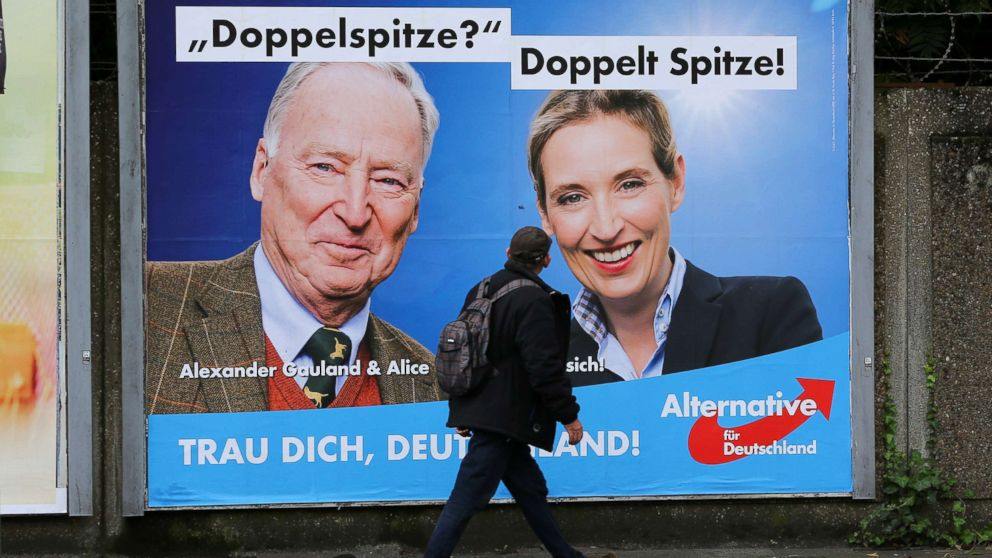
Many of the AfD’s members consist of former members of the CDU who were left disgruntled following both the CDU’s economic policies and more recently the party’s stance on immigration and the handling of asylees. Many felt that the CDU failed to take adequate measures in order to address Germany’s various issues, slowly trickling to other right-wing parties such as the AfD and Die Republikaner (the Republicans).
Despite the bulk of the AfD coming from conservative backgrounds, a number of former members of the Freie Demokraten (Free Democratic Party) and the Federation of Independent Voters joined forces with the AfD. Many of these members consisted of economists, professors, small business owners, and other entrepreneurs.
The 2013 Manifesto
While the AfD’s 2013 manifesto originally portrayed it as a Euroskeptic economic-focused populist party, the party soon shifted towards an anti-immigrant stance as its national conservative faction slowly gained more power.
Despite claims of being a “far-right party,” the AfD lacks a number of deciding factors which often describes the far right in the manifesto such as nativism. Kai Arzheimer, a professor of Political Science at the University of Mainz focused on the far and radical right across Europe, stated that in the 2013 manifesto, “Immigrants and immigration are mentioned only 23 times (equivalent to a single mention in six percent of all posts), and not necessarily in a negative context.” This is a significant difference between their mentions of Germany and the EU, referencing Germany 253 times, the Euro 327 times, and the EU itself 253 times in the manifesto.
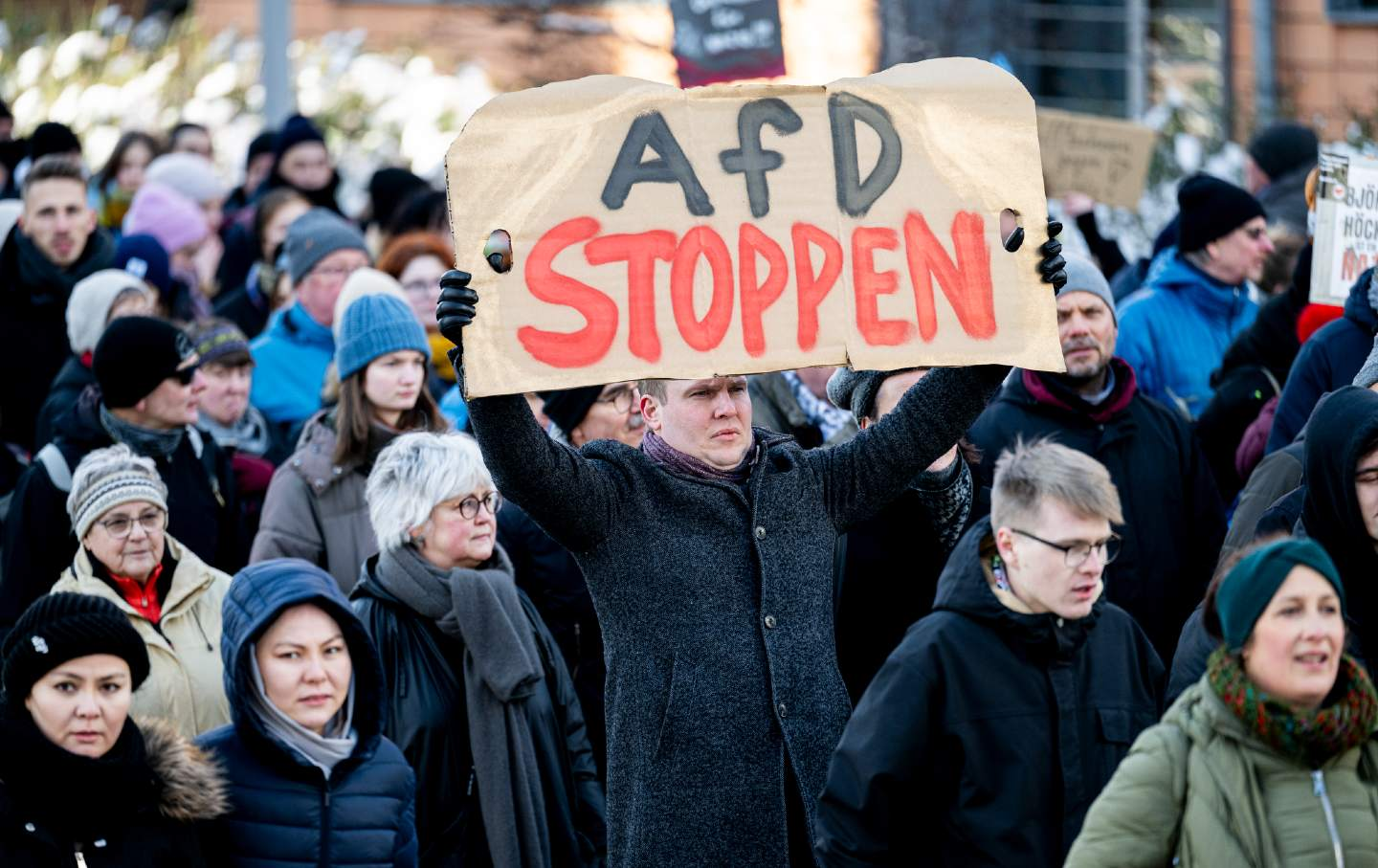
While the AfD is a known Euroskeptic party, regularly criticizing both the EU and “Brussels” in their manifesto, it is important to note that the AfD does not support the complete dissolution of the European Union but rather the lessening of the Union’s power over member states alongside questions regarding the Euro and bailouts in what is known as a “soft Euroskeptic” ideology.
While the 2013 manifesto showcases the party’s early belief system, there was a notable shift in the party’s core beliefs in 2015 with the ascension of Frauke Petry, part of the national-conservative faction of the party, as the speaker for the AfD. It was at this point the AfD took a harder stance on immigration with the party’s key concerns shifting to the perceived Islamification of Western Europe, illegal immigration, and the strengthening of ties with Russia.
This change in ideology led to the resignation of a number of MEPs and the resignation of Bernd Lucke, one of the aforementioned founders of the party. Many of these figures cited the rise in anti-immigrant and pro-Russian sentiment within the AfD as key reasons for their departure.

The rise in these sentiments led to the AfD to seek cooperation with the Austrian Freiheitliche Partei Österreichs, (FPO), a similarly labeled right-wing extremist political party. This cooperation, however, would lead to conflict between the AfD and ECR, with the two MEPs belonging to the AfD leaving the ECR, one voluntarily and the other forcibly removed from the EU group.
Petry ultimately left the party as well amid the 2017 Federal Elections, citing internal conflict within the AfD regarding a number of issues before claiming that the party had become “anarchical” and could not “offer the voter a credible platform for government.”
Petry would go onto form the Blaue Partei (Blue Party) which was later dissolved 2019 due to its failure to win elections in Saxony and Thuringia, polling at an abysmal 0.4 percent and 0.1 percent, respectively.
The Controversies of the AfD
Alternativ fur Deutschland has been mired in controversy since the party’s formation. At the party’s inaugural meeting to decide the AfD’s leadership, Die Heimat (the Homeland)—a party commonly referred to as a neo-Nazi party and excluded from state funding in January due to holding “disdain for the free democratic basic order”—staged a protest due to Die Heimat’s belief the AfD was taking voters away from the party.
Additionally, claims surfaced that the party was attempting to attract members of the “far-right” after copies of Junge Freiheit (Young Freedom), a political newspaper which is described as a “hinge between national conservatism and the extreme right,” were discovered being handed out outside a meeting, according to German political scientist Gideon Botsch.
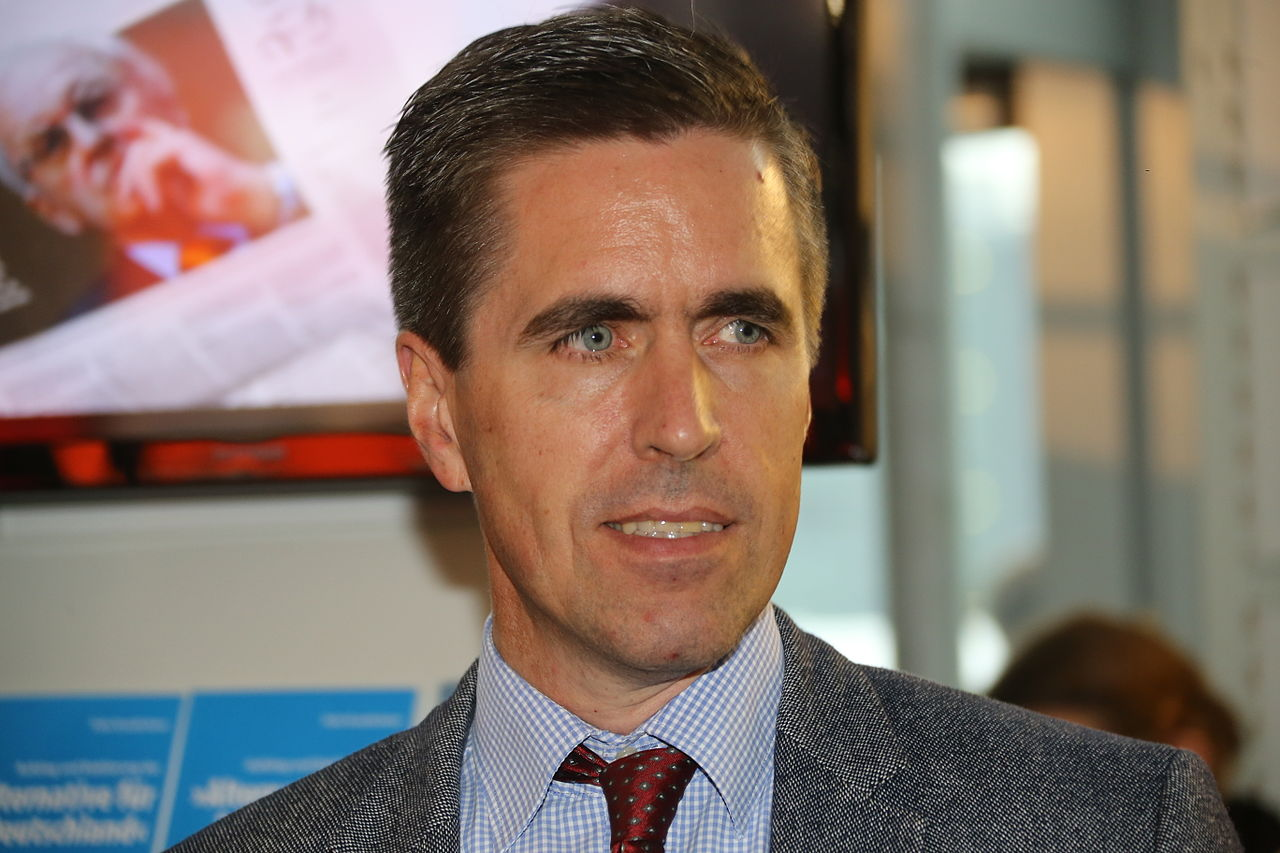
Following these claims, the party’s leadership released a statement which stated that the party was not interested in attracting right-wing extremists and began distancing itself from language previously used on social media following accusations that the wording used resembled that of right-wing extremists by major news outlets such as Der Spiegel.
The party more intense vetting for prospective members, denying those with ties to Germany’s extreme right in an effort to restore their reputation and further distance itself from the extreme right label.
In 2017, Bjorn Hocke gave a speech to supporters in Dresden where the politician criticized the Memorial to the Murdered Jews of Europe in Berlin, stating, “We Germans, that is, our people, are the only people in the world who have planted a monument of shame in the heart of their capital,” prompting a number of Jewish community leaders and politicians to condemn the speech for perceived antisemitism.
This would not be the last time Hocke made waves in this regard. In a separate speech in 2021, Hocke declared “Alles fur Deutschland” (Everything for Germany), which was a common phrase by the National Socialist paramilitary group known as the Sturmabteilung (Storm Division). In December 2023, Hocke encouraged supporters to use the phrase once again, calling out “alles für,” leading the audience to yell out “Deutschland.” This phrase was commonly used by the Nazi paramilitary group Sturmabteilung (Storm Division) and made common appearances on the group’s daggers and other paraphernalia. Despite the two instances of usage and prosecutors’ requests to try him on both counts, the court only tried Hocke on the incident in 2021.
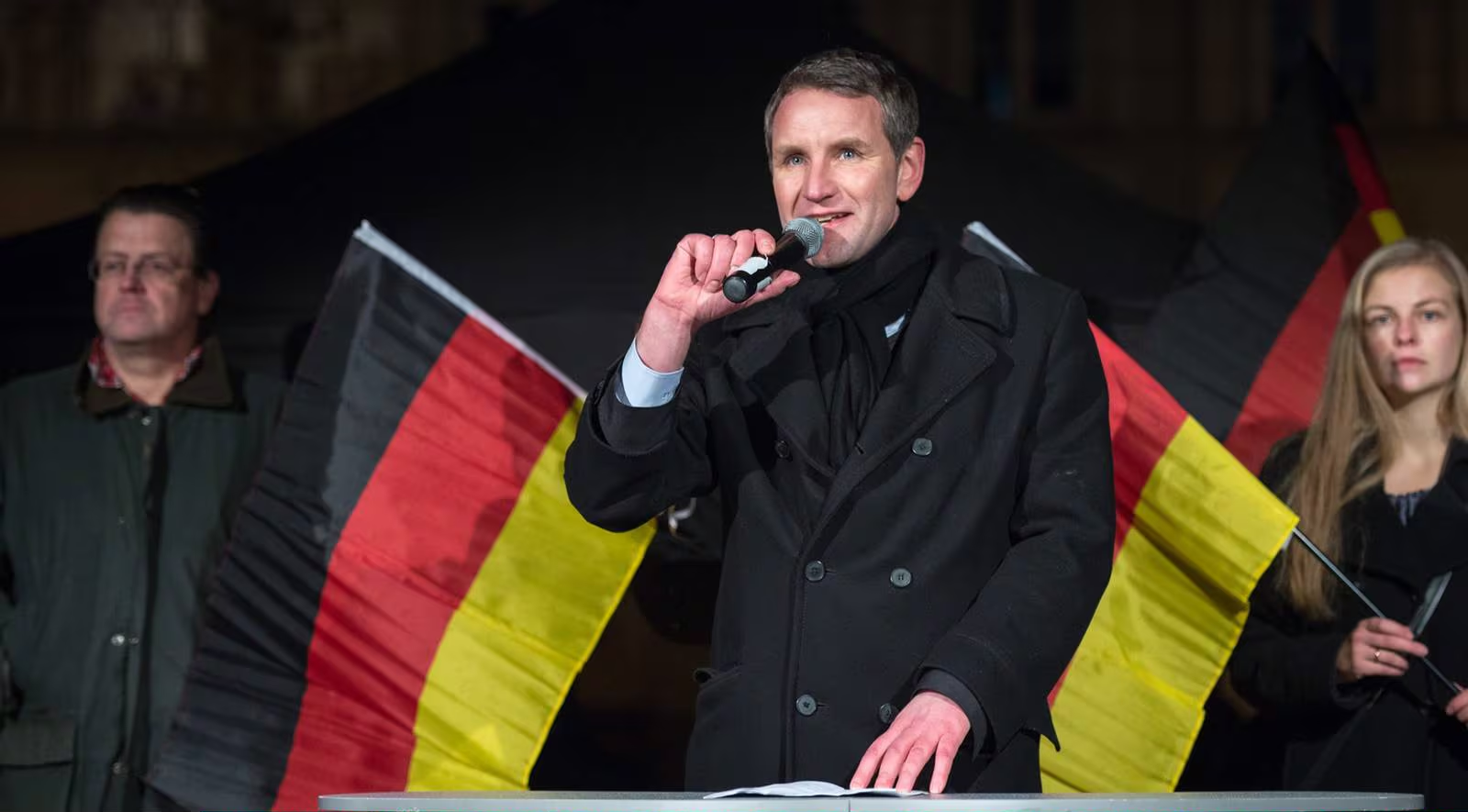
These statements led to an extensive investigation and an eventual criminal charge in April 2024, with the trial beginning on April 18. Hocke claimed that he had not known the phrase was used by Sturmabteilung, which has led to some skepticism by critics as Hocke was a history teacher prior to his career in politics. Hocke reportedly argued in court that the phrase was a common saying, should not be banned, and that he was “completely innocent” of the charge.
The judge presiding over the case, Jan Stengel, reportedly told Hocke he was “an articulate, intelligent man who knows what he is saying,” as reported by the German news agency DPA.
The trial concluded on May 15 with the court finding Hocke guilty of using a Nazi slogan. While the charge could have landed Hocke in prison for a maximum of three years and barred him from holding public office, the court instead ordered the politician to pay €13,000 euros ($14,000 USD), with the proceeds going to a grassroots anti-extremism program, according to DW News.
The AfD was again the center of controversy in January after a meeting regarding “re-migration” in November 2023 was leaked by Correctiv, a German investigative journalism outlet. The meeting consisted of two members of the AfD, “neo-nazis,” and a number of other political activists, and focused on the idea of “re-migration” for those deemed to be “unassimilated” into German culture, a policy which would see the deportation of migrants regardless of if they held a German passport or not.
“Unassimilated citizens like Islamists, gangsters and welfare cheats should be pushed to adapt through a policy of standards and assimilation,” Martin Sellner, the leader of Austria’s Identitarian Movement and the one who proposed the policy, stated after the meeting was leaked.
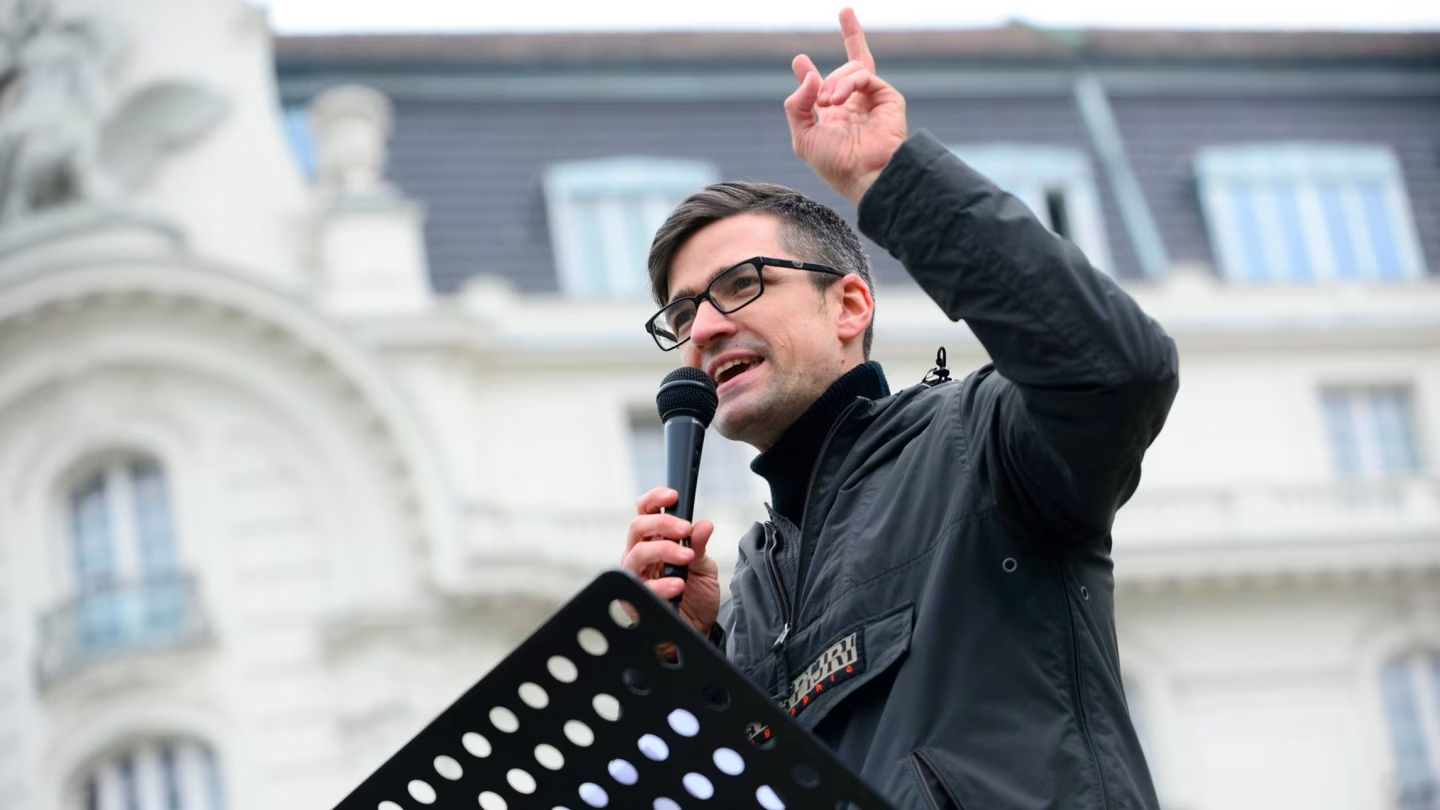
Following this revelation, the AfD denied any plans to pursue “re-migration,” telling Reuters that “the AfD won’t change its position on immigration policy because of a single opinion at a non-AfD meeting.” Sellner himself would be banned from entering Germany for three years following the exposure of the meeting.
Alongside the idea of “re-migration,” the creation of a “model state” in North Africa was discussed, where many of those deported would ultimately be sent to.
After the meeting was leaked, a number of protests against the AfD broke out across Germany, with tens of thousands taking to the streets of cities such as Cologne, Berlin, and Hamburg. Protests consisted of a variety of members, with even German Chancellor Olaf Scholz making an appearance in one such protest.
Alice Weidel, the co-leader of the AfD, blasted the report by Correctiv, claiming that it misrepresented and smeared the party ahead of elections across eastern Germany. She further stressed that the party’s main concerns regarding immigration consisted of the prevention of illegal migration, restrictions on nationalism, and deportation of migrants suspected of terrorism.
“Whoever has German citizenship belongs without question and without doubt to the German nation,” Weidel told a news conference. “And that’s precisely why the German citizenship may not be sold off cheap and distributed with a watering can.”
On May 23, the AfD was expelled from Identity and Democracy (ID), a right-wing nationalist coalition in the European Parliament, following remarks from the party’s leading candidate for the European Union elections in early June regarding the Schutzstaffel (SS).
In an interview with Maximilian Krah, a former MEP for the AfD, by Italian newspaper La Repubblica, the politician stated that the Waffen SS were “not all criminals,” citing the life of Gunter Grass, an author and winner of the Nobel Prize in Literature who revealed in an autobiography that he was a member of the SS. Krah further claimed that many of those serving with the SS were “peasants,” before stating that the politician “would never say that anyone who wore an SS uniform was automatically a criminal.” Following the conclusion of the 2024 European Parliamentary elections, Krah was removed from the AfD likely in an attempt for the AfD to rejoin ID. Krah criticized the move, stating that the party “shouldn’t let a foreign party dictate who you stand with.” However, the politician stated he respected the decision.

Following the announcement of the expulsion, the AfD reportedly petitioned ID to focus their expulsion solely on Krah, Reuters reports. “We see this as the last (albeit desperate!) attempt to prevent the exclusion of the entire AfD delegation from the ID parliamentary group,” MEP Christine Anderson wrote in a letter, according to Reuters.
“The AfD is going from one provocation to the next,” Marine Le Pen, a French politician who confirmed ID’s parting with the AfD following the statements, stated before claiming that the party is “clearly controlled by radical groups.”
The AfD has seen a hit in opinion polls conducted by Politico. The party previously stood at 22 percent in January, placing themselves as the second most popular party in Germany. Now, however, the party stands at a mere 17 percent, putting the AfD neck and neck with the Social Democratic Party of Germany (SPD), which also stands at around 15 percent.
Victory Despite Faltering Support
Analysts theorized these controversies would have a negative effect on the AfD’s electoral prospects for the 2024 European Union Parliamentary elections. These theories have largely fallen flat following the results of the elections which placed the AfD second place nationally behind the conservative CDU/CSU.
The CDU/CSU secured an even 30 percent of the national vote in Germany while the AfD managed to obtain 15.90 putting the party slightly above the ruling SPD which secured 13.90. The Greens saw a massive loss of popular support, securing only 11.90 percent of the vote compared to the EU’s last election cycle in 2019 when the party earned 20.5 percent of the vote, placing them in second place below the CDU/CSU. The Sahra Wagenknecht Alliance–Reason and Justice, a left-wing populist newcomer–managed to secure 5 percent of the vote in this year’s elections, marking a significant victory for the young party following their separation from die Linke (the Left) in January.

This election showcases an important change within Germany’s political sphere, with the ruling SPD and Ampel coalition members facing growing disapproval from Germans across the country. Meanwhile, Germans are returning to the established CDU/CSU which historically held power in Germany since 1982, with a brief interlude following the election of Gerhard Schroeder as Chancellor of Germany from 1998-2005.
Analysts have suggested that the AfD’s relative victory in the EU elections despite the party’s numerous scandals has largely been driven by rising Euroscepticism across Germany. This belief has strengthened in recent months, most visibly by farmers protesting en-masse since 2023 following the EU’s exclusive grain deals with Ukraine amid the Russian invasion alongside a number of green reforms prompted by the EU. These reforms included accords to force farmers to minimize tillage per acre, policies to reduce the need for chemical fertilizer and chemical pesticides, as well as requiring farmers to surrender four percent of their land for biodiversity.
These reforms were ultimately cut down in March in a move analysts theorized was designed to secure votes ahead of this year’s elections. Ultimately, it seems this plan failed following the relative victory for Europe’s right-wing elements across the board.

Aside from the EU’s controversial green initiatives, another reform pushed by the international organization resulted in significant backlash from Europe’s conservative elements. In April, the EU passed a bill seeking to increase the speed and efficiency regarding the union’s deportation and asylum processes across the board. This reform targeted key policies in the EU and was the result of eight years of a deadlocked parliament amid some of the worst years for Europe regarding irregular migration.
While many of these reforms elicited support from Europe’s right, political figures on the right claimed the reforms did not take enough action against illegal and irregular migration.
Key among these criticized reforms was the EU’s plan to redistribute asylees and migrants in what the union dubbed the “solidarity mechanism” which resulted in significant condemnation from conservative elements. This “solidarity mechanism” intends to redistribute a number of refugees equal to 50 percent of the hosting country’s population and GDP, with a minimum of 30,000 refugees from countries that struggle with the processing and containment of refugees, such as Italy, Greece, and Spain, to other member states.
Those who refuse to accept refugees from other member states will have to pay 20,000 euros (21,516 USD) per refugee refused or provide a minimum of 600 million euros (645.5 million USD) in “equipment or experts such as lawyers.”
Critics of this new policy include Polish Prime Minister Donald Tusk, who promised that Poland would oppose the reforms. Tusk was joined in his criticisms by his Hungarian counterpart, Prime Minister Viktor Orban, who claimed the reforms were forced on the EU, equating them to Europe being “legally raped.”
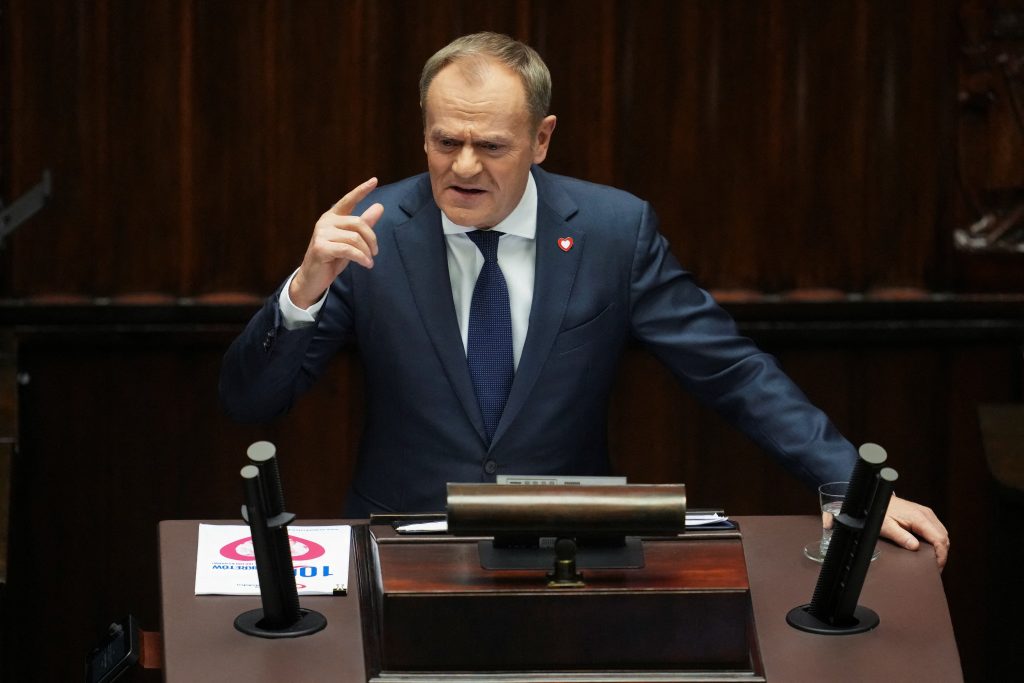
Opposition to the policy at least temporarily united left- and right-leaning parties in April, with left-wing protestors throwing paper airplanes with the coordinates of shipwrecks transporting migrants while en route to Europe at members of European Parliament during the vote.
This opposition from the left was further exemplified by the EU’s Green party, which voted against eight of the ten proposed reforms alongside several other leftist parties, claiming that the reforms failed to protect guarantees for human rights.
Right-wing politicians claimed the reforms were a blow to the sovereignty of members of the EU and that the reforms would help facilitate operations carried out by human traffickers and would lead to a large increase in illegal immigration into the EU.
Germany’s conservative and right-wing elements were not the only ones who secured victory. Europe’s right saw significant gains across the board with France’s Rassemblement National (RN), which is currently under the leadership of Marine Le Pen, securing 31.5 percent of the national vote in the elections, prompting French President Emmanuel Macron to dissolve the National Assembly after his coalition secured just 15.2 percent of the vote. In Italy, Prime Minister Giorgia Meloni also saw a significant victory with her Brothers of Italy party securing 28.8 percent of the vote, more than four times what the party secured in the EU’s elections in 2019.
Classification as an Extremist Organization
In 2021, the German Federal Office for the Protection of the Constitution (BfV) classified the AfD as a suspected extremist organization nationally, allowing authorities to utilize wiretaps and informants in investigations against the party.
This designation followed an investigation conducted by the BfV into the AfD, which found that the party had become “increasingly radicalized.” Regional arms of the AfD had already faced this classification, with chapters in Thuringia, Saxony, and Saxony-Anhalt being labeled as official extremist organizations.

The party began proceedings to appeal this designation in mid-March, ahead of Germany’s general election and European elections, which took place in June. Some claim that the party sought to delay the hearing until elections are concluded by requesting 457 new pieces of evidence prior to the hearing, more than double the original 200 in March.
The AfD’s lawyers have further claimed that judges presiding over the case have been biased against the party, with one of their lawyers, Christian Conrad, requesting to dismiss the judges presiding over the case, a request that presiding judge Gerald Buck claimed to be an abuse of the plaintiff’s rights.
The court case against the AfD concluded on May 14 with the Higher Administrative Court of North Rhine-Westphalia upholding the designation by the BfV.
While the AfD has not been labeled a confirmed right-wing extremist group, the BfV may take motions to label the political party as such. Such a move would have to enter new court proceedings, however, granting the AfD another chance to fight against the designation.
“The court finds there is sufficient evidence that the AfD pursues goals that run against the human dignity of certain groups and against democracy,” the judges stated. “There are grounds to suspect at least part of the party wants to accord second-rank status to German citizens with a migration background.”
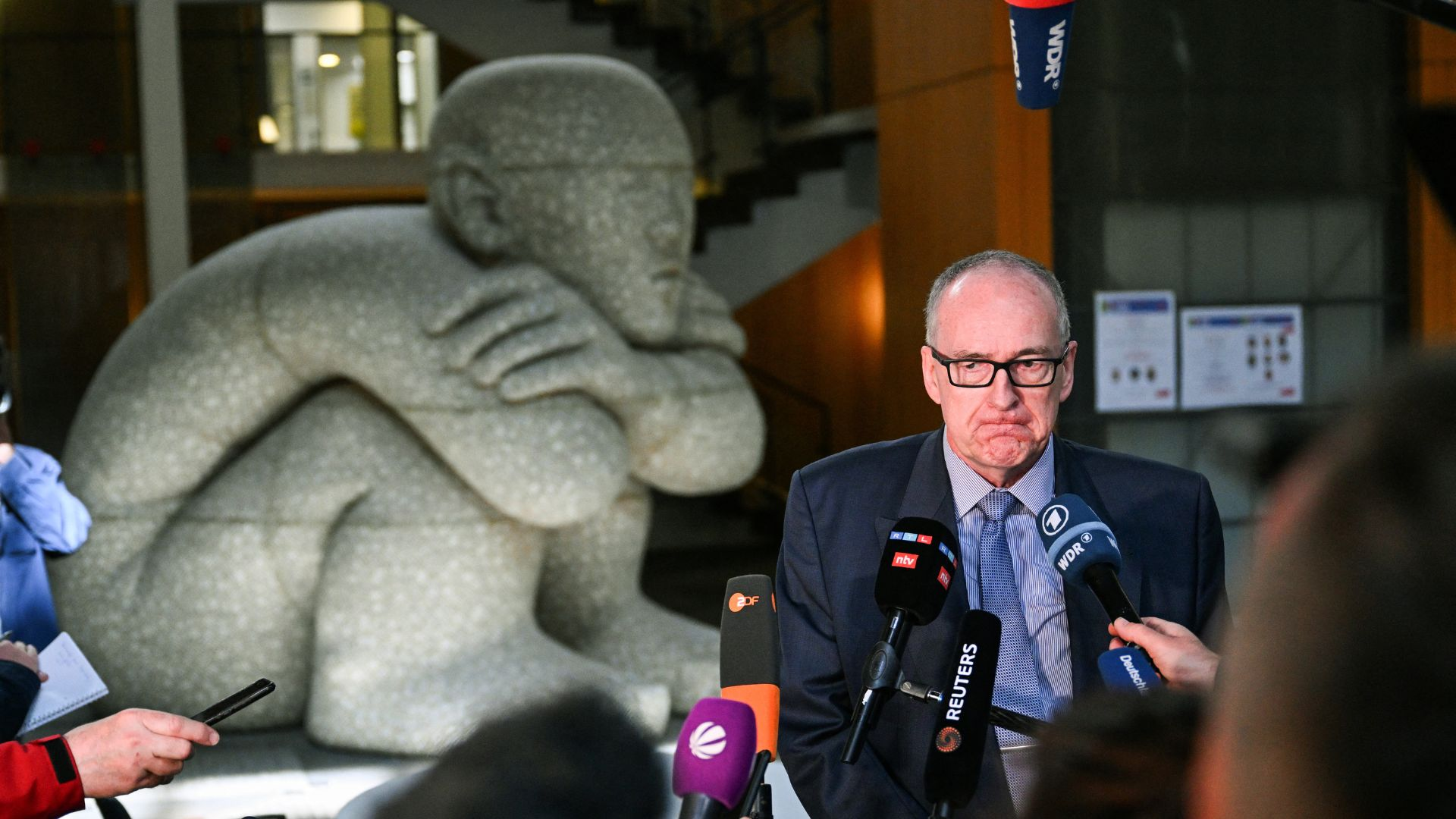
In order to ban the party, however, the BfV will have to prove that the AfD seeks to put an end to the democratic process in Germany. In order for a motion to ban the party to commence, it must first be requested by either the Bundestag (the German federal governing body) or the Bundesrat (the federal representation of the sixteen German states).
“At this point, a procedure to ban the party would still have to identify an element that is actively militant, in other words, that acts according to a plan,” the President of the Thuringian BfV, Stephan Kramer, stated. “For this to happen, it is not necessary that any crimes have been committed.”
Calls for a National Ban
In August 2023, a number of political figures and activists called for a ban on the AfD, citing the classification of the party as an extremist organization. The most recent poll regarding a potential ban of the AfD stands at an even 47 percent split with Germans, with members of the left claiming that a ban is needed to protect the democratic system in Germany. Others claim that such a ban would only increase support for the AfD, claiming that the party would play the part of a martyr. The AfD itself has spoken out against calls for a ban, believing that a ban would be in an effort to further consolidate the majority parties’ power.
“Calls for the AfD to be banned are completely absurd and expose the anti-democratic attitude of those making these demands,” said Alice Weidel told POLITICO. “The repeated calls for a ban show that the other parties have long since run out of substantive arguments against our political proposals.”
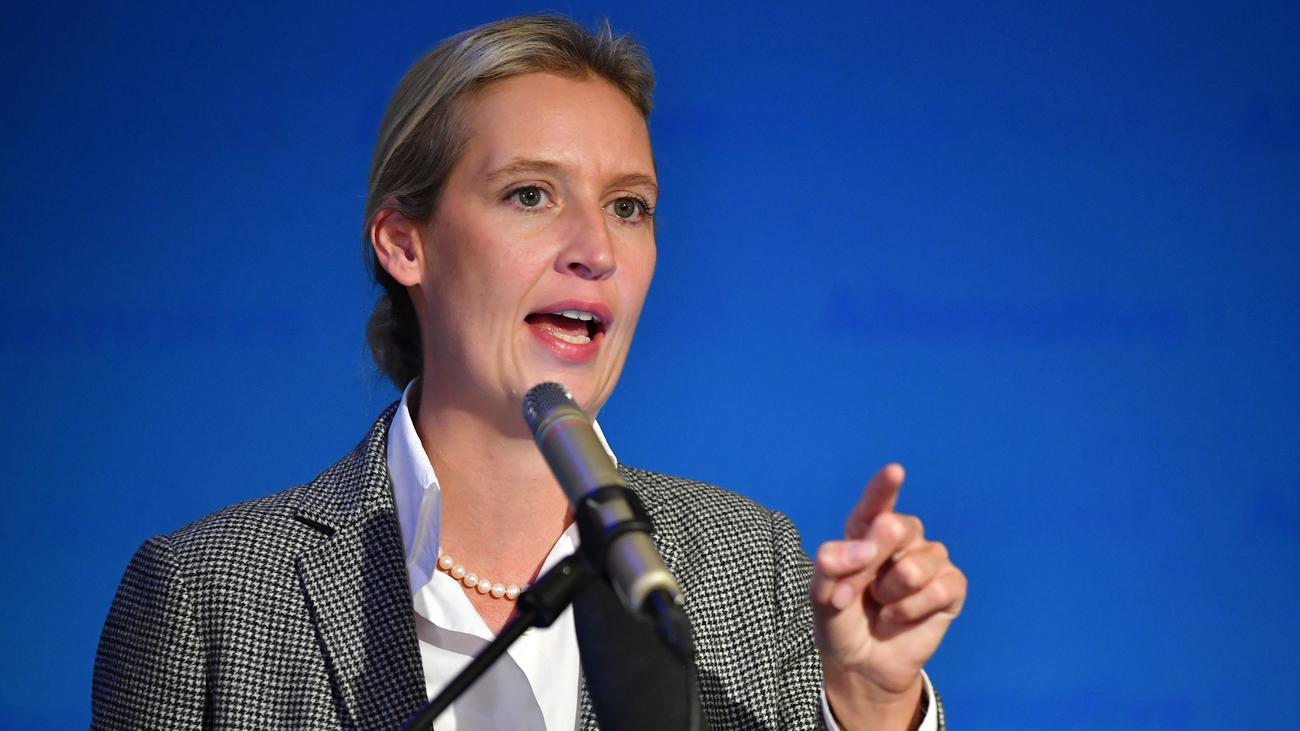
Germany’s President, Frank-Walter Steinmeier, told the domestic intelligence agency that “we all have it in our hands to put those who despise our democracy in their place” in a speech in Bonn where the German Constitution, the Basic Law for the Federal Republic of Germany, was signed.
Germany’s domestic spy chief, Thomas Haldenwang, has previously claimed the party has had an increase in extremism, saying, “We see a considerable number of protagonists in this party that spread hate against all types of minorities here in Germany.”
Der Spiegel, a German news outlet, has also condemned the party, claiming “the AfD has become more and more radicalized. It’s time to defend democracy with better weapons” in an article titled “Ban the enemies of the constitution!”
The German Institute for Human Rights, an organization unaffiliated with the government, claims the party “has reached a degree of dangerousness that they can be banned according to the constitution.” They further claim the party is seeking “to implement its racist and right-wing extremist goals” and is “shifting the limits of what can be said so that people can get used to their ethno-nationalist positions.”
How Can a Party be Banned?
Germany has had a long history of banning and limiting rival parties, originating with Otto von Bismarck’s severe limitation of the Social Democrats, citing concerns over their loyalty to Kaiser Wilhelm I and their support for socialism consisting of prohibiting socialist organizations and gatherings, declaring trade unions illegal, shutting down newspapers, and restricting the distribution of socialist material.
In order to mitigate such abuses, the German Constitution has made banning parties an intense legal battle, which has protected Die Heimat, previously known as the National Democratic Party of Germany and a neo-Nazi party, from such bans.
To ban a party, the German Constitutional Court must hear a case against the defendant with the case being initiated by any Federal State, the Bundestag, or the government. After a case is taken, the defendant must be proven to pose a danger to the democratic process in Germany or by posing a direct threat to the state. Furthermore, the spread of anti-democratic sentiment cannot be the sole reason for the banning of a party; rather, the party must have an “actively belligerent, aggressive stance vis-à-vis the free democratic basic order and must seek to abolish it.”
This has led some to speculate that a ban is unlikely; one such critic is Volker Boehme-Nessler, a political scientist, who speculated an attempted ban would only strengthen the party’s popularity.
“You can’t simply ban a party that gets 20-30 percent approval,” he told the eastern German broadcaster MDR, which broadcasts for the federal states of Saxony, Saxony-Anhalt, and most notably Thuringia, where the party has achieved most of its success.

